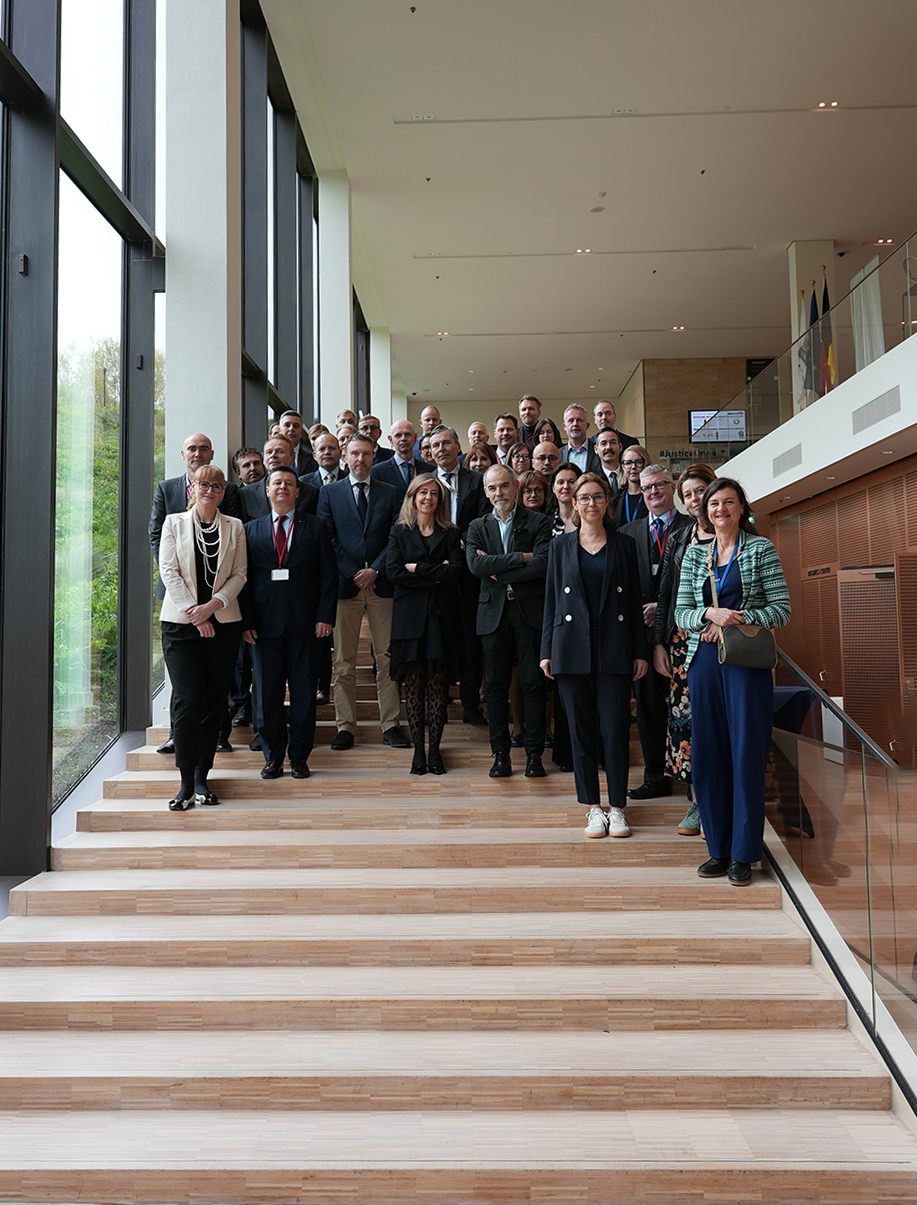High-level representatives and prosecutors from the United States, the European Union, international organizations, and civil society have been taking stock of the latest developments and cooperation tools for the use of battlefield evidence collected in the context of an armed conflict. During a dedicated expert meeting at Eurojust, specialised prosecutors from the European Union dealing with counter-terrorism were joined for the first time by their counterparts from core international crimes units.

The expert meeting was co-organised by the Eurojust Counter-Terrorism Working Group, the U.S. Department of Justice and the EU Network for the investigation and prosecution of genocide, crimes against impunity and war crimes (Genocide Network). The exchanges over the past two days are of crucial importance to prosecutors of terrorism offences and core international crimes, including war crimes, crimes against humanity and genocide. Expertise in the use of evidence from past armed conflicts can be used in proceedings related to ongoing and future conflicts.
Commenting on the importance of the meeting, Mr Matthew F. Blue, Chief of the Counterterrorism Section in the National Security Division of the U.S. Department of Justice said: ‘Terrorists and war criminals should have no illusions that they are safe from prosecution when they plot and commit crimes in conflict zones. The United States is committed to ensuring that battlefield evidence is available for use in its domestic cases and those pursued by its European allies. Today’s meeting reaffirms the strong transatlantic commitment to ensuring that this vital tool is effectively harnessed.’
Mr Baudoin Thouvenot, National Member for France and Chair of the Counter-Terrorism Team at Eurojust, stated: ‘We are experiencing challenging times, with a continuing terrorism threat and war at the borders of the EU, and now more than ever, impunity is intolerable. The use of evidence collected on battlefields is a crucial asset in the fight against war crimes, genocide and terrorism. Having the EU and the U.S. judicial authorities working together and sharing expertise sends a strong message on the international scene.’
In view of continued terrorist threats, the fight against terrorism remains high on the EU agenda. Eurojust has been assisting cases against returning Foreign Terrorist Fighters (FTFs) and analysing the criminal justice response for some twenty years. A specific focus has been placed on FTFs who travelled to the conflict zone in Syria, but also other areas, to join jihadist terrorist groups.
The complex and dynamic FTF phenomenon has been changing through the years. The support provided by Eurojust has been evolving to ensure that challenges faced by national authorities, including the gathering and admissibility of evidence, e-evidence and financial investigations, are addressed and national efforts are strengthened by solid multilateral cooperation and coordination.
Battlefield evidence plays a key role in such cases. Such evidence may include registration forms, photos depicting crimes committed against civilians, fingerprints on explosive devices and e-mails describing terrorist plots. This evidence can demonstrate the operational workings and command structures of terrorist organisations, including the role of specific suspects and their associates. Battlefield evidence also can assist in assessing the intent and policies of different terrorist organisations operating in the EU, U.S. and globally.
Battlefield evidence is also crucial to build cases that go beyond the prosecution of membership and financing of terrorism to also entail core international crimes. Some FTFs may be prosecuted for both sets of crimes cumulatively. For example, battlefield evidence shared by U.S. authorities and other partners such as the United Nations Investigative Team to Promote Accountability for Crimes Committed by Da’esh/ISIL (UNITAD), whose mandate will come to an end in September 2024, has strongly supported EU prosecutors to obtain cumulative convictions against FTFs on terrorism and core international crimes charges. This for instance has led to a higher level of sentencing of FTFs who were involved with Da’esh/ISIL in crimes against Yezidi victims.
The expert meeting at Eurojust is another milestone in the long-standing cooperation between Eurojust and U.S. authorities on enhancing the access and use of battlefield evidence. It provided a platform for the sharing of challenges and best practice amongst practitioners, which is key to overcoming legal and practical hurdles in ongoing and future criminal cases. It demonstrated information and evidence sharing between EU, U.S. and international partners is of prime importance in investigating and prosecuting alleged FTFs and has proved to be successful in the past.
In joining forces, Eurojust, the U.S. Department of Justice and the Genocide Network have laid the foundation for a community of practice between prosecutors from diverse backgrounds, from all over the EU and partner countries. The expertise is essential to strengthen capacities and foster further cooperation in present and future investigations and prosecutions concerning crimes committed in conflict areas.
